Camelbak is best known for its hydration products: water bottles, hydration packs and running packs made for top level athletes and everyday running enthusiasts alike. The Camelbak Apex Pro 12L running vest was made to keep athletes hydrated and happy on race day and is the Camelbak athlete’s product of choice for the UTMB series this year.
Perfect for long days in the mountains, it packs an army of great features that are both extremely practical and well-designed but also keep you safe. However, the Apex Pro boasts a hefty price tag of £175 RRP, and whilst comfort, capacity for carrying the essentials and durability are all important requirements of a running pack, can Camelbak live up to its promise and justify the price?

Pros
- Very high quality build
- Durable
- Includes pole quiver
Cons
- Heavier than other running packs
- Transparency on sustainability is lacking
| Materials | 85% Nylon / 15% Woven Spandex |
| Colours | Black |
| Size range | XS-M |
| Weight | 353g including flasks (M) |
Design and Features
First things first, we were blown away by the quality of this pack. During testing the nylon material has gotten snagged on thorns, pushed past branches and generally suffered some heavy abuse - but there is no real sign of wear. Perhaps it's because the pack weighs 338 grams on home scales, which is heavier than other high end models, indicating a thicker, more durable material. It is also somewhat less breathable as a result, but I did not have any issues with wicking when using it in UK summer conditions.
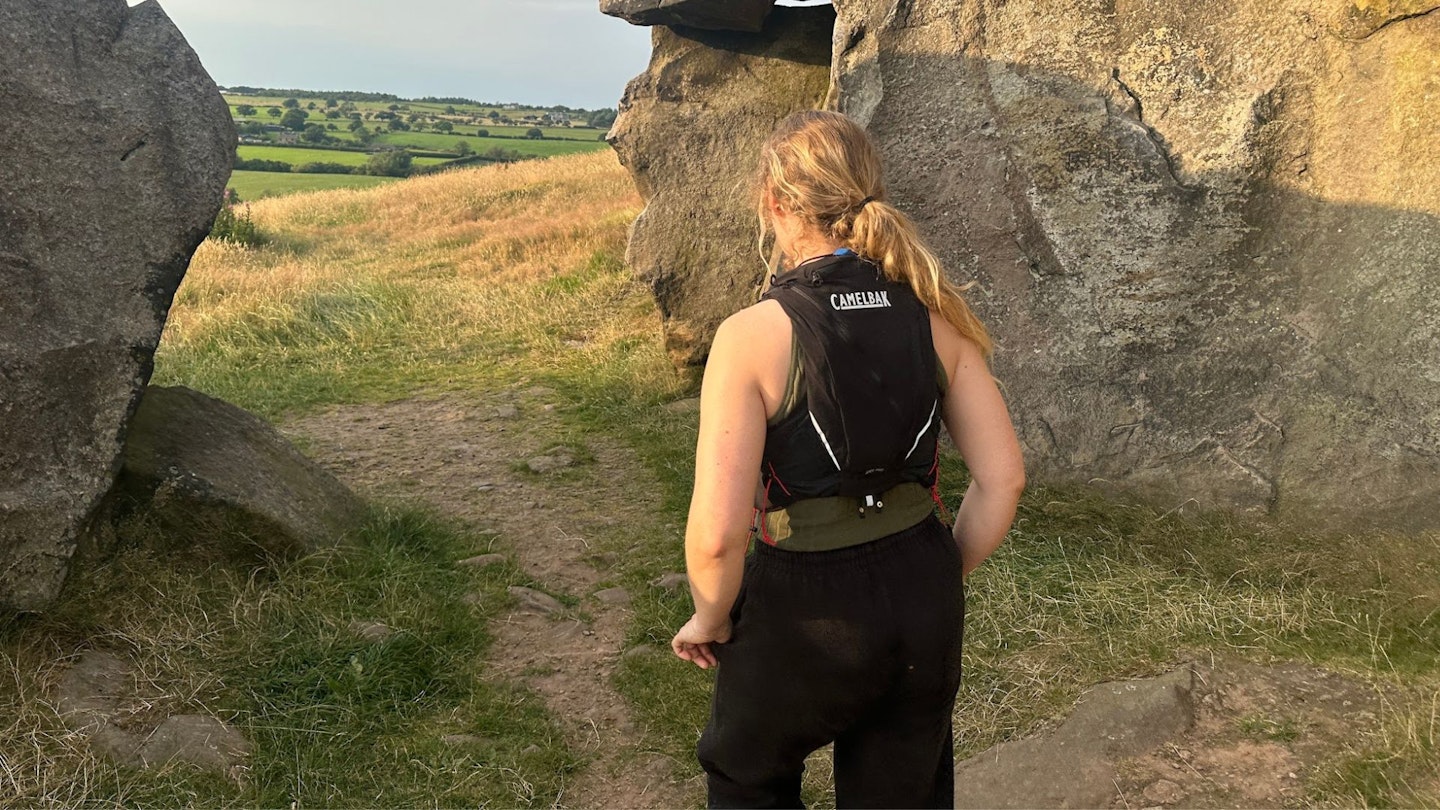
The main compartment at the back of the pack is very large and spacious. Above the main pocket there is a smaller compartment with a waterproof zip, ideal for phones or secret treasure maps that shouldn't get wet. There is also a mesh compartment all the way down the back panel to keep a water reservoir, holding up to 2 litres, but you will have to buy one of these separately as one doesn’t come with the bag.
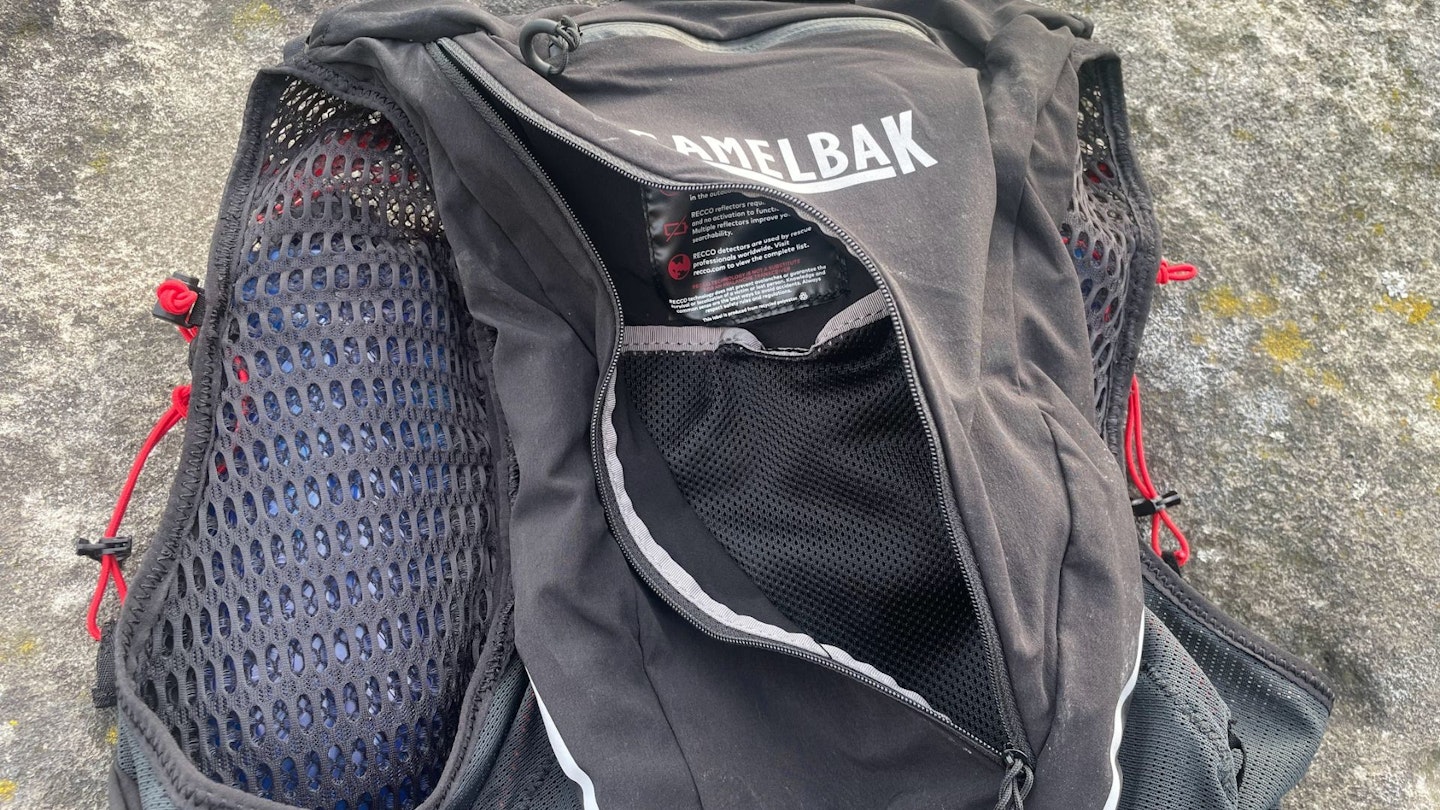
However, what the bag does come with is a trekking pole quiver. This is fully removable and stowable, as well as being attachable over either of the shoulders, which allows for customisability in the setup. Towards the front of the pack there is also a button to snap the quiver drawstring to, for easy access on the move. Another nice detail is the three drainage holes at the bottom of the quiver, allowing for water or snow to escape.
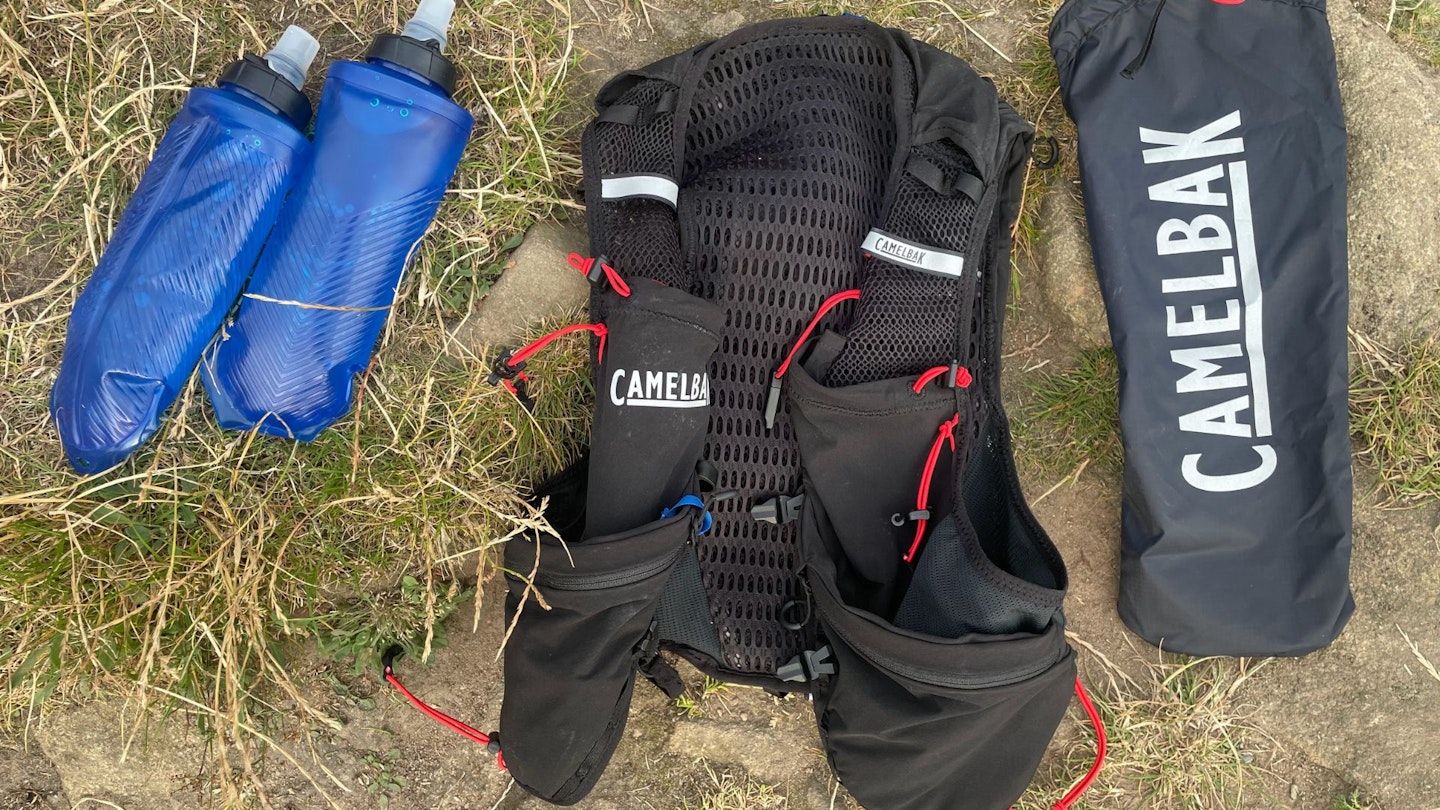
Safety has also been taken into consideration with the design of this pack. Not only are there plentiful reflective patches on the pack, including a huge reflective Camelbak branding on the quiver, but there is also included RECCO reflector technology. Rescue teams with a helicopter send a cone shaped signal over the area in which you went missing and the pack will passively return this signal allowing for faster recovery. This technology is used by rescue professionals in more than 900 ski resorts and mountain rescue organisations in 32 countries.
Comfort and Fit
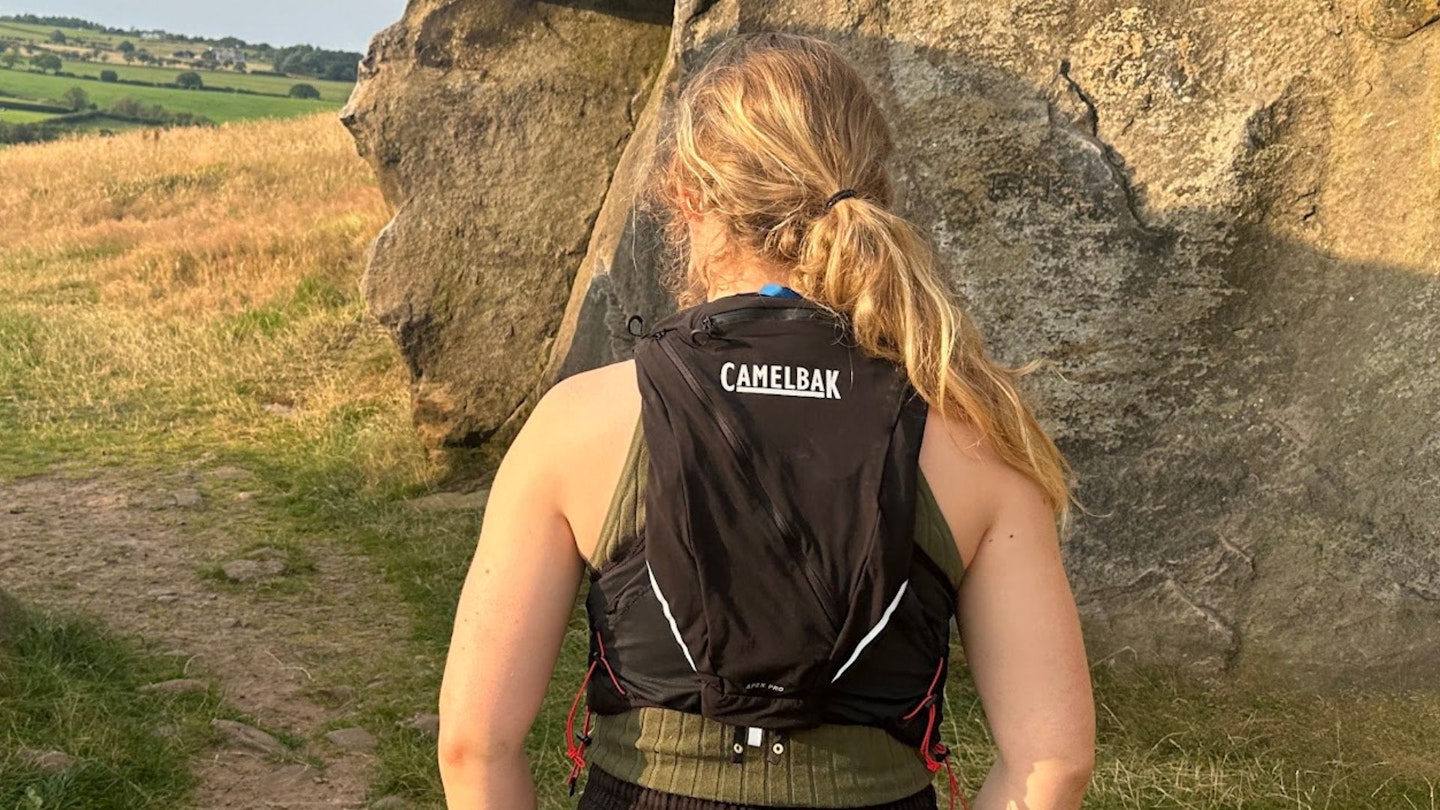
This model is the comfiest Camelbak running pack we have encountered, potentially due to the four way stretch nylon materials. Comfy from the first wear, we have no complaints in terms of feel. There are two adjustable chest straps and clips on the front rails for sizing. Additional cinch chords allow for adjustment to achieve a snugger or loser fit. This packs sizing is unisex, and we tested a medium. At 6 feet tall but relatively slim, the medium fit our torso well in length and width, but we believe someone with a bulkier upper body would benefit from sizing up.
Pockets and Smaller Details
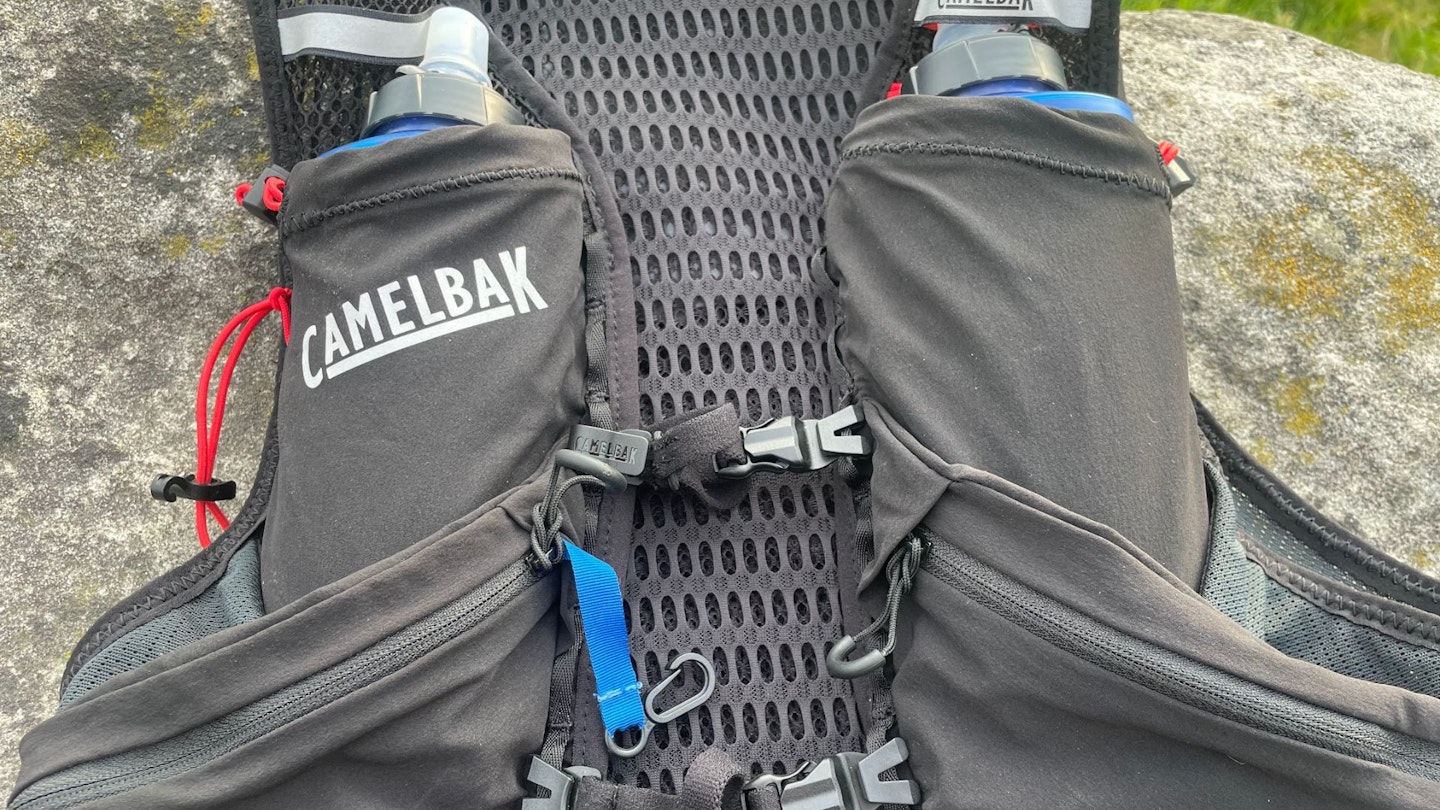
This pack comes with two 500ml quick stow flasks. These are stored in two pockets on the front panels of the pack and features a pull chord to prevent too much bouncing around. There are also two more storage pockets below the flask compartments; one that is not secured and one that has a zip closure and a key clip. Pull chords on the zips are juicy and easy to grab when running. However, the quick stow flasks may not be the best on the market as they feel undersized compared to other 500ml flasks and the bite valves do not always sit in the correct orientation when stowed away. But they do the job and don’t leak. Finally, there is a sizable pass-through pocket at the back perfect for storing a rain jacket or warm layer.
Cost and Market Comparison

It is undeniable that this is an expensive pack. Retailing between £140 and £150, but on Camelback's website for £175, it is comparable to the Salomon Advanced Skin 12 which offers the same capacity in litres and is also designed for long distance races and epics in the mountains. However, where the Camelbak comes out on top is the inclusion of the pole quiver which is not included with many (if any) other packs at this range in the market. Should you purchase a Salomon quiver separately you would be paying an extra £30.
Sustainability
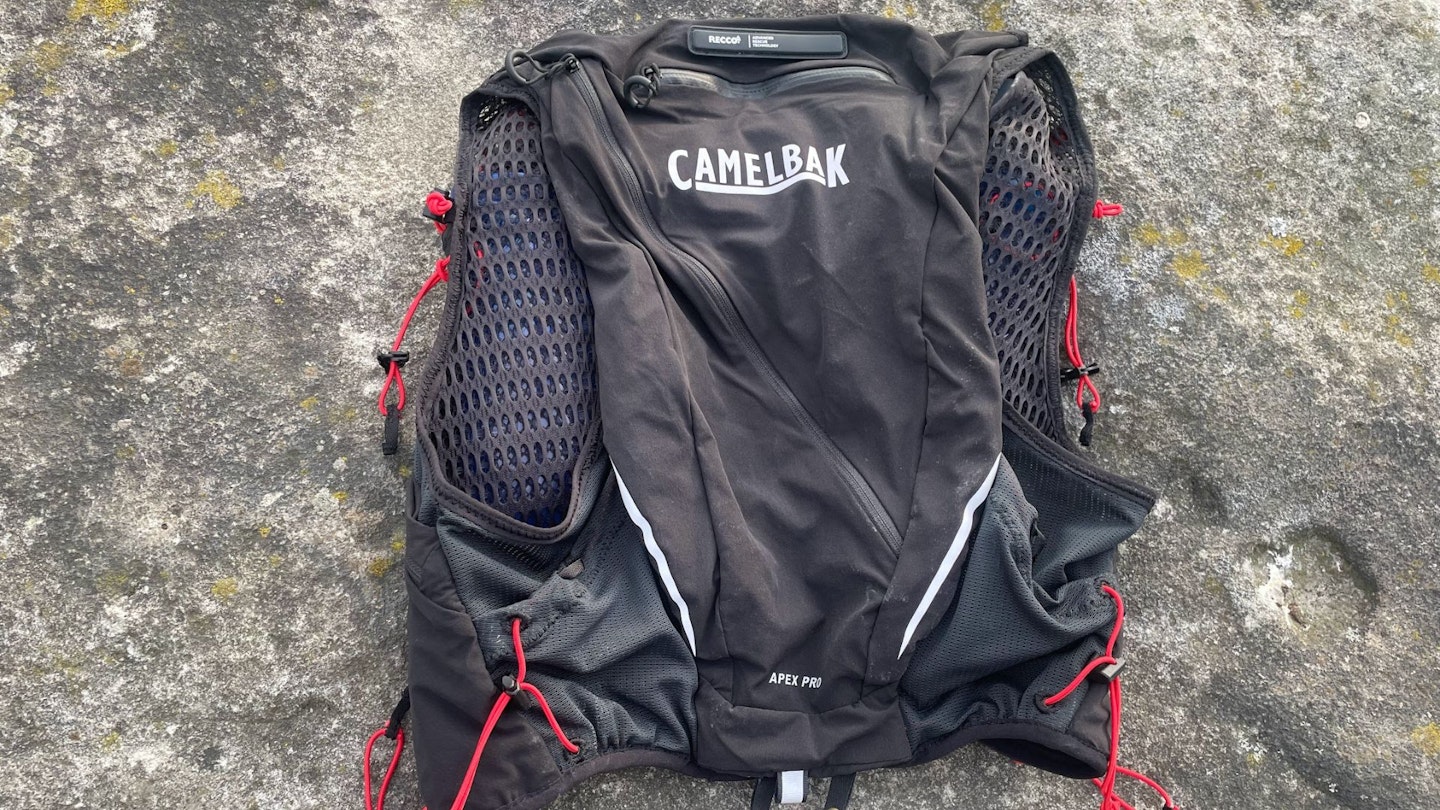
Camelbak uses a 5-stage system to indicate the sustainability level of each product. The Apex Pro receives a green Repurpose badge meaning it hits one of the 5 goals that Camelbak has set for their products. These include making products with safer chemicals, using recycled materials, being designed with repair in mind, using recycled packaging and reducing disposable usage. It is unclear which goal this has achieved.
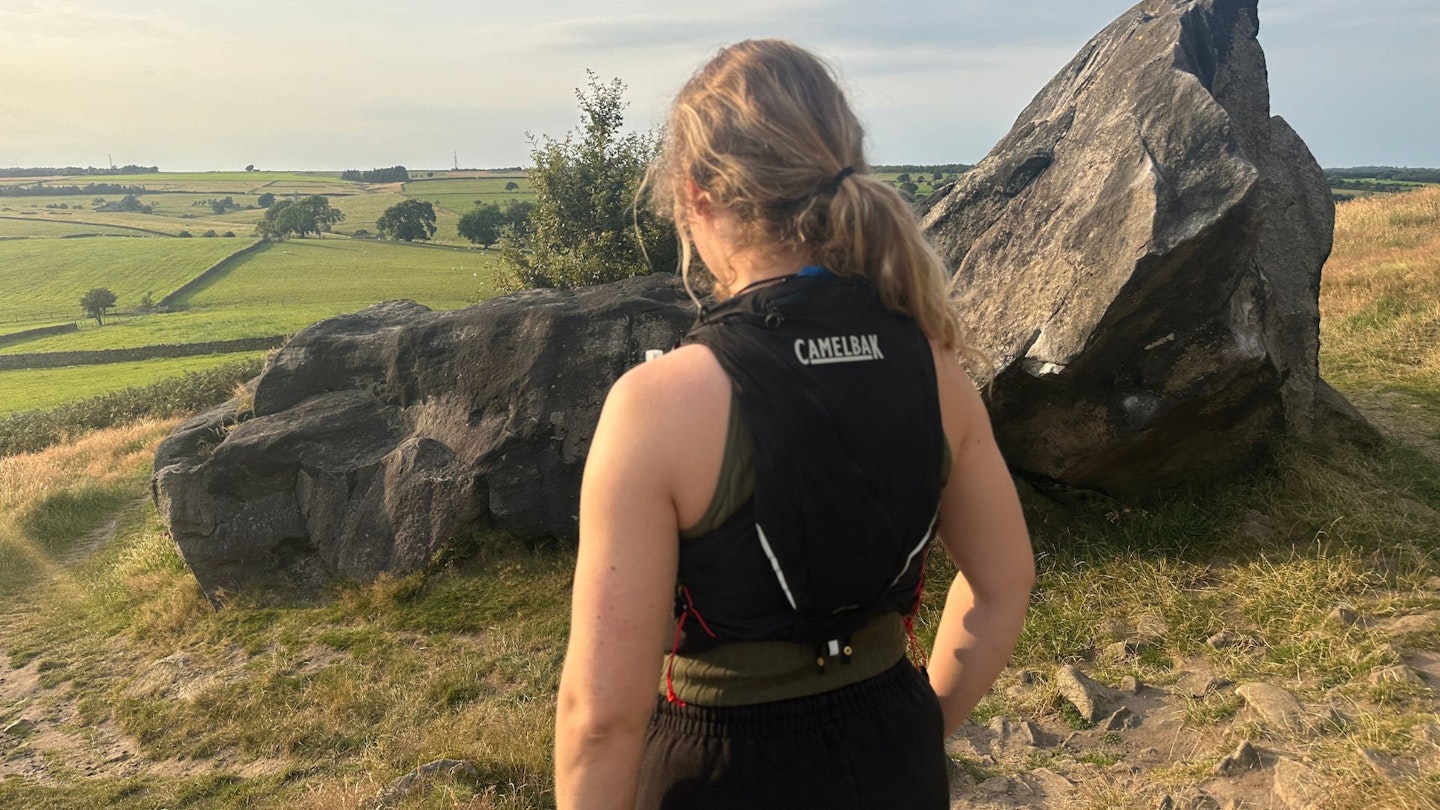
Camelbak are also part of the European Outdoor Conservation Association and the Conservation Alliance. Camelbak is definitely implementing good steps to being a sustainable company, but there still lacks clarity on individual products leaving the everyday consumer slightly in the dark. I found it difficult to get to the specifics with vague commitments on the Camelbak UK website.
Verdict
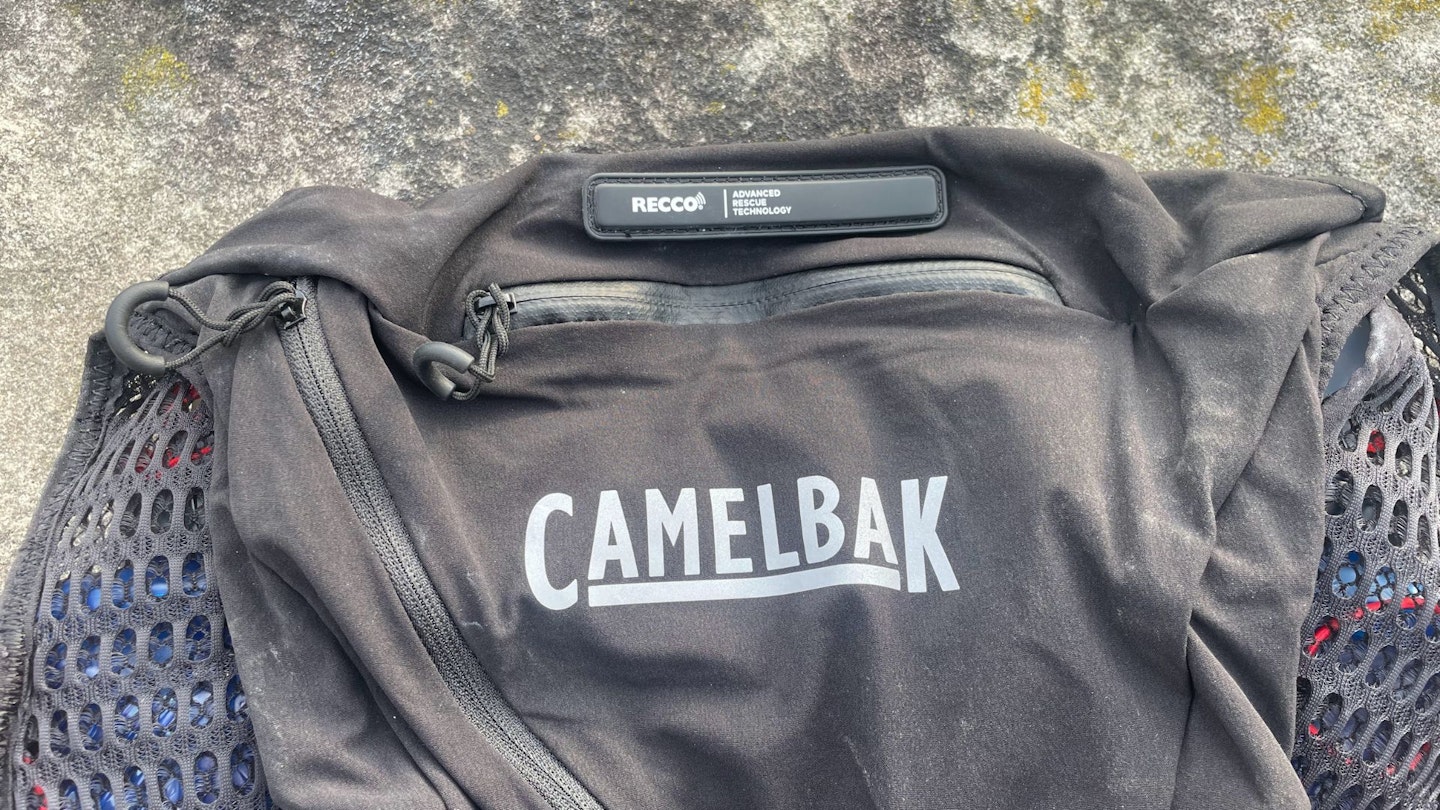
To conclude, the Apex Pro 12 is an incredibly well-designed running pack that is a fantastic companion for your days out in the mountains. Despite being slightly heavier than some counterparts, the comfort, quality of every component, safety considerations, durability and practicality makes up for this ten times over. If you are wanting an all-round high end running pack, buy the Apex Pro.
How we tested
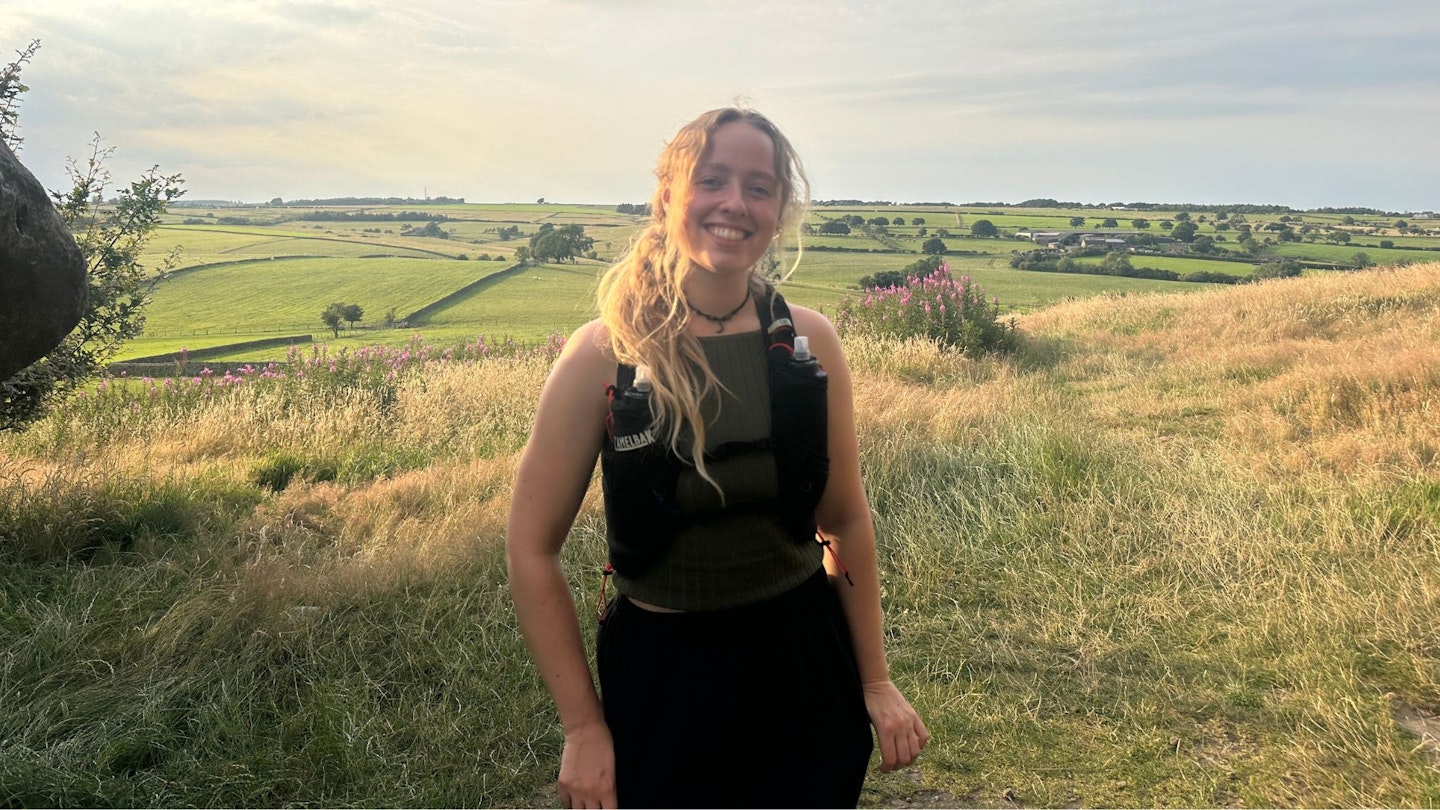
Taken for runs over the Yorkshire Moors and Dales, the Apex Pro has been out for some lovely days in the hills, on the back of LFTO freelance tester Meg Durkin. Running up to distances of 15 miles and taking enough fuel and water for some long stints on the trails, she also packed a variety of gear and tested out a bunch of different set ups over the course of Summer 2024. You can read more about how we test gear here.
